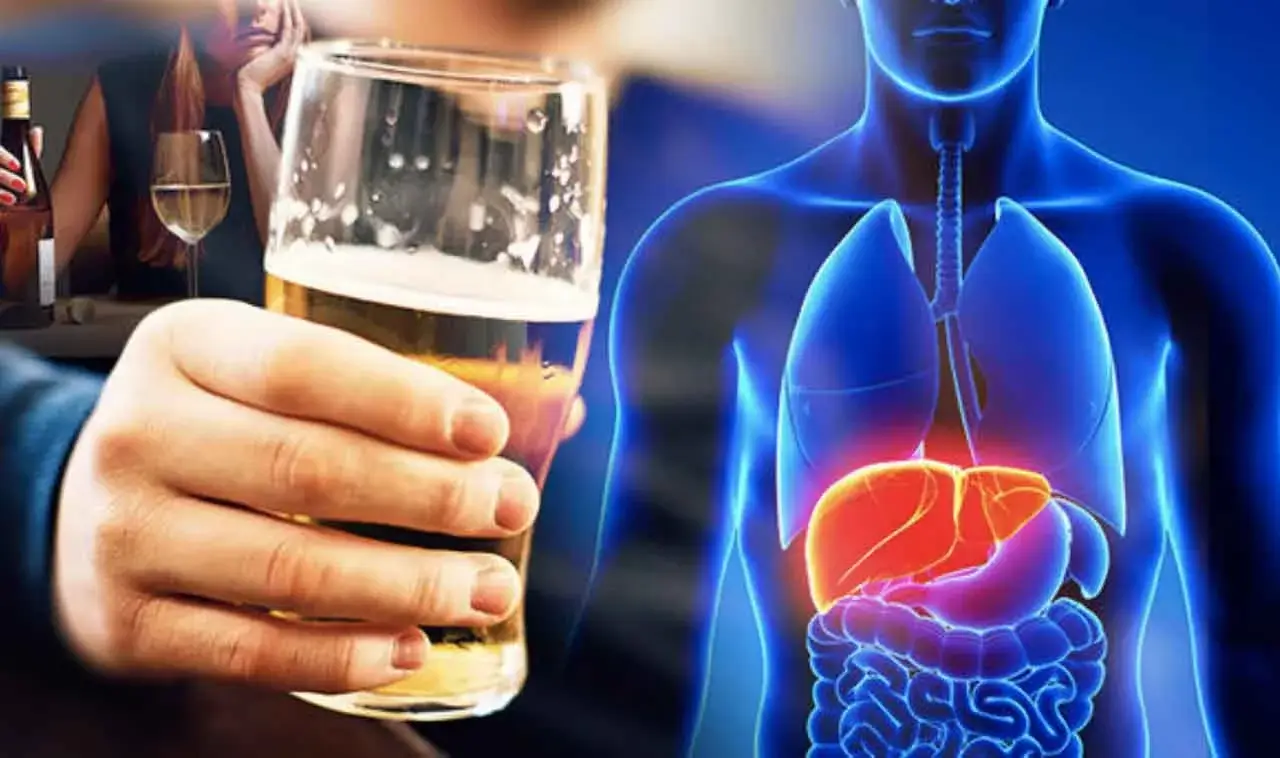Scientists uncovered the secret of how alcohol destroys the liver

Alcoholic beverages are one of the most harmful factors to human health. Its effect is primarily directed at the liver, as the liver is recognized as the main organ responsible for alcohol processing in the body.
According to statistics, between 2000 and 2021, mortality from alcohol-related liver diseases worldwide increased by 32.6%. At the same time, the incidence of liver cancer has almost doubled - by 94%. Nevertheless, for a long time, scientists could not fully reveal the true mechanism of alcohol-induced diseases in the body, and it was difficult to find effective ways to treat them.
Researchers at the University of California took a new approach to the issue by studying intestinal function in patients who consume alcohol for a long time. They found that there is a special receptor called M4 in the intestine. This receptor acts as a "border post": it examines bacteria and transmits only harmless parts to the immune system. That is, in such a process, microbes go through "document control."
However, when alcohol is consumed, the activity of this receptor is disrupted. As a result, the control system in the intestine is lost, bacteria are released unimpeded and are directed directly to the liver. This causes a strong inflammatory process in the organ. Simply put, alcoholic beverages pave the way for harmful bacteria in the liver.
This conclusion of the scientists was confirmed not only by the example of patients, but also by laboratory experiments. In mice that were given alcohol for a long time, the activity of the M4 receptor also decreased, and the "boundary control" in the intestine was completely disrupted. Harmful microbes accumulated in the liver, intensifying the inflammation, as well as the accumulation of fat in liver cells - steatosis. Specialists noted these conditions as the main symptoms of alcohol-dependent liver diseases.
Interestingly, scientists also discovered the possibility of reactivating an M4 receptor that failed during the experiment. They managed to restart the receptor by using another signal system in the body. As a result:
- The control system in the intestines started working again, bacteria no longer passed freely;
- "Document verification" was restored and harmful microbes were blocked from entering the liver;
- The liver was protected from the attack of bacteria, the inflammation subsided, and the recovery process accelerated.
Officials emphasized that in the near future, the safe and effective method of activating the M4 receptor could become a major scientific and medical breakthrough in treating liver diseases.
Read “Zamin” on Telegram!













